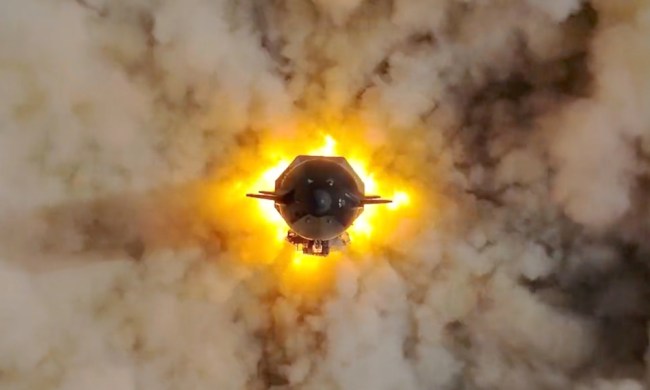The Russian space agency, Roscosmos, has announced it is halting launches of its Soyuz rockets from Europe’s spaceport in French Guiana in response to sanctions from the European Union due to Russia’s invasion of Ukraine. The EU imposed wide-ranging sanctions on Russia this week following missile and troop attacks on Ukrainian cities in what the EU described as an “unprovoked, unjustified invasion.”
“In response to EU sanctions against our enterprises, Roscosmos is suspending cooperation with European partners in organizing space launches from the Kourou cosmodrome and withdrawing its personnel, including the consolidated launch crew, from French Guiana,” head of Roscosmos, Dmitry Rogozin, wrote in a tweet translated from Russian, first reported by space.com.
Russian Soyuz rockets are regularly used by the European Space Agency (ESA) to launch scientific missions, and the Soyuz at the Guiana Space Centre program has been operating since 2011. As pointed out by SpaceNews, in the short term, this will affect the launch of Galileo navigation satellites scheduled for April this year, as well as other missions like the launch of ESA’s EUCLID telescope.
This is not the first time that Russia has threatened to revoke access to its rockets in protest of sanctions from the international community. In 2014, when Russia annexed Crimea and the U.S. imposed economic sanctions, Russian officials threatened to stop letting U.S. astronauts launch to the International Space Station (ISS) using Russian rockets. At the time, the Space Shuttle program had been retired and the SpaceX Crew Dragon capsule had not yet been developed, so Russian rockets were the only way the U.S. had to ferry its astronauts to the station. In that case, Russia did continue to carry U.S. astronauts, and now the U.S has its own capabilities with the SpaceX Crew Dragon.
The current situation also raises questions about the future of the ISS. The current contract requires the ongoing operation of the ISS until 2024, but NASA and other agencies hope to keep the station running until 2031. If Russia pulls out and declines to continue supporting the ISS, the end of the space station could come much sooner. Rogozin, the head of Roscosmos, has also made threats about how the station could be subject to an “uncontrolled deorbit” without the Russian segment of the station providing guidance and navigation, though these threats are generally not taken seriously due to the presence of Russian cosmonauts on the station.



